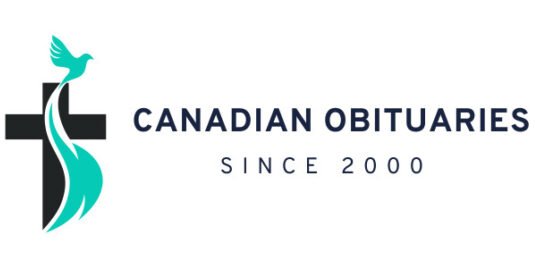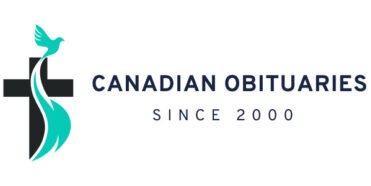The loss of a loved one is an emotional and challenging time. Amidst the grief, planning a funeral can feel overwhelming due to the many decisions that need to be made. This guide aims to help you navigate the process by outlining the key steps and considerations involved in arranging a meaningful funeral.
Understanding Different Types of Funerals
Funerals are personal ceremonies that reflect the beliefs, traditions, and preferences of the deceased and their family. In Canada, funerals typically take place within one to four days after death, but the timing can be adjusted to accommodate family needs, such as allowing distant relatives time to travel.
Traditional Funerals
A traditional funeral usually includes:
- Visitation or Viewing: A scheduled time for family and friends to gather, offer condolences, and view the deceased if they wish.
- Funeral Service: A formal ceremony that may include readings, eulogies, prayers, and music, held in a funeral home, religious institution, or another significant location.
- Committal Service: The final disposition of the body through burial, entombment, or cremation, often accompanied by additional rites or ceremonies.
Alternative Options
Some families may prefer different approaches, such as:
- Direct Burial or Cremation: Proceeding without a prior viewing or formal service. This option is often chosen for simplicity or personal preference.
- Memorial Service: A gathering held after the burial or cremation, focusing on celebrating the individual's life. This can take place at any location meaningful to the family or the deceased.
Working with a Funeral Home
Funeral homes offer professional services to assist families during this difficult time. They can help with:
Essential Services
- Administrative Tasks: Handling necessary paperwork, permits, and death certificates.
- Coordination: Arranging details with cemeteries, crematoriums, religious leaders, and other service providers.
- Care of the Deceased: Preparing the body according to the family's wishes, which may include embalming or dressing.
Optional Services
- Facilities Usage: Providing spaces for viewings, services, and receptions.
- Merchandise: Offering caskets, urns, and other funeral products.
- Transportation: Arranging vehicles for the deceased and family members.
- Additional Arrangements: Assisting with florists, obituary notices, musicians, and officiants.
Note: Funeral homes may offer packaged services or itemized options to suit different needs and budgets. It's important to review and understand all costs involved.
Financial Considerations
Funerals can be a significant expense. To manage costs:
- Create a Budget: Determine what you can afford before making arrangements.
- Ask for Price Lists: Funeral homes are required to provide detailed pricing information.
- Consider Financial Assistance: Explore options such as government programs or veterans' benefits that may help cover expenses.
Veterans: Organizations like the Last Post Fund assist eligible veterans with funeral and burial costs.
Notifying Necessary Parties
After a death, it's important to inform:
- Family and Close Friends: Start with immediate family and those closest to the deceased.
- Employers: Notify the deceased's workplace to address any employment matters.
- Insurance Companies: Contact life insurance providers to begin claim processes.
- Financial Institutions: Banks and credit card companies need to be informed.
- Healthcare Providers: Notify doctors and cancel any upcoming medical appointments.
- Clubs and Organizations: Inform any groups or associations the deceased was involved with.
- Government Agencies: Depending on circumstances, you may need to contact agencies like Service Canada or Veterans Affairs.
Obtaining a Death Certificate
A death certificate is a legal document required for settling the deceased's affairs. It can be used to:
- Access Financial Accounts
- Transfer Property
- Claim Life Insurance
How to Obtain:
- Through the Funeral Home: They can often assist in ordering certified copies.
- Vital Statistics Office: You can request copies directly from your provincial or territorial office.
Information Needed:
- Full legal name of the deceased
- Date and place of birth and death
- Personal details such as marital status and parents' names
- Your relationship to the deceased
Travel Arrangements for Attendees
If family members or friends need to travel:
- Bereavement Fares: Some airlines offer discounted rates for those attending a funeral or visiting a critically ill relative.
- Documentation: Airlines may require proof, such as a death certificate or contact information for the funeral home or hospital.
Preplanning a Funeral
Planning your own funeral in advance can:
- Ease the Burden: Relieve your family from making tough decisions during a stressful time.
- Ensure Wishes Are Honored: Specify preferences for services, burial or cremation, and other personal touches.
Steps to Preplan:
- Document Your Wishes: Write down your preferences for the type of service, location, music, readings, and attendees.
- Choose a Funeral Provider: Research and select a reputable funeral home or director.
- Consider Prepayment: If you decide to prepay:
- Understand the Terms: Know how your funds are secured and what happens if circumstances change.
- Review Cancellation Policies: Ensure there's flexibility if you need to make changes.
- Inform Loved Ones: Share your plans with family members and keep documentation accessible.
Important: Preplanning doesn't have to involve prepayment. Simply communicating your wishes can be immensely helpful to your loved ones.
Additional Considerations
- Cemetery Arrangements: If burial is chosen, selecting a burial plot or mausoleum space may involve separate costs and arrangements.
- Memorialization: Decisions about headstones, markers, or memorial benches should be made, considering both preferences and regulations of the chosen cemetery.
- Cultural and Religious Practices: Be mindful of any specific traditions or rites that should be incorporated into the funeral services.
Supporting One Another
Remember that planning a funeral is not just about logistics; it's also a time for family and friends to come together, share memories, and support one another. Don't hesitate to lean on your community, delegate tasks, and seek professional guidance to help ease the process.
By understanding the steps involved and the options available, you can create a heartfelt tribute that honors your loved one's life and provides comfort to all who attend.
If you have any questions or need further assistance in planning a funeral, please feel free to reach out to professionals who can provide personalized guidance.










